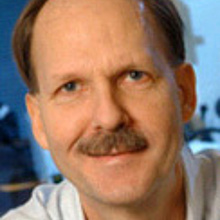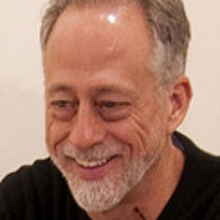Jump to the content
- {{#headlines}}
- {{title}} {{/headlines}}

Contact
Kristina Güroff
Kerstin Schweichhart
Press, Communications
and Marketing
Tel.: +49 228 833-144/257
Fax: +49 228 833-441
presse[at]avh.de
Georg Scholl
Head of
Press, Communications and Marketing
Tel.: +49 228 833-258
Fax: +49 228 833-441
presse[at]avh.de
Timothy Bromage and Michael Tomasello
Human Evolution

Professor Dr. Timothy Bromage
has been a professor at New York University College of Dentistry since 2004. One of his research interests is located in Malawi, where he examines the structure of bones and teeth to draw inferences on the living conditions of early humans. Findings on the micro level, which only a few researchers have investigated so far, are proving particularly enlightening. Bromage hopes to use them to discover the answers to difficult questions such as whether bones and teeth belonged to a male or female individual and whether there was more than one annual rainy season at the time. In the course of his research, he discovered a new mechanism which uses the lamellar construction of bones as the basis for drawing conclusions on growth rate and individual life history. The award will help Bromage to develop the investigation of bones and teeth into an even more important tool for research into human evolution. He is currently compiling a database which he will use to compare the metabolism and bone structure of today’s apes and humans. He has been honoured for his academic achievements by the National Science Foundation (2009, 2007), the National Geographic Society (2008) and the National Institute of Health.

Professor Dr. Michael Tomasello
born in Bartow, Florida (USA), is psychologist and Director of the Max Planck Institute for Evolutionary Anthropology in Leipzig. He heads the Department of Comparative and Developmental Psychology. Working at the interface of the humanities and natural sciences he is particularly interested in the acquisition of language and cultural evolution in humans. In numerous empirical studies involving small children and great apes Tomasello is trying to determine the cognitive abilities which differentiate humans from highly-developed great apes, enabling them to create a shared human culture. The researcher is convinced that one of the key elements in this is humankind’s ability to see things through other people’s eyes and to imitate both their behaviour and the intentions associated with it. For his research Tomasello has been awarded numerous prizes including the Fyssen Foundation Prize for Cognitive Science, 2004, the Jean Nicod Prize for Philosophy of Cognitive Science, 2006, the Oswald Külpe Prize, University of Würzburg, 2009, and the Hegel Prize, City of Stuttgart, 2009. He has cooperated with a number of Humboldt Research Fellows in his role as an academic host in the Humboldt Foundation’s network, including the Sofja Kovalevskaja Award Winner, Brian Hare.
Download brochure
Download Movie
Further Information
- Max Planck Research Award Winners 2016
- Max Planck Research Award Winners 2015
- Max Planck Research Award Winners 2014
- Max Planck Research Award Winners 2013
- Max Planck Research Award Winners 2012
- Max Planck Research Award Winners 2011
- Max Planck Research Award Winners 2010
- Max Planck Research Award Winners 2009
- Max Planck Research Award Winners 2008
- Max Planck Research Award Winners 2007
- Max Planck Research Award Winners 2006
- Max Planck Research Award Winners 2005
- Max Planck Research Award Winners 2004
